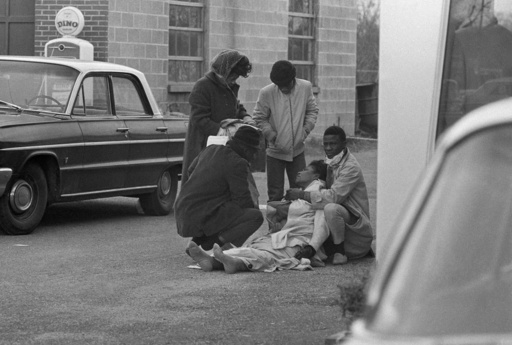
ATLANTA — Teja Smith, an advocate based in Los Angeles, found herself chuckling as she prepared to board her flight to Mexico for a vacation. The thought of participating in yet another Women’s March on Washington felt out of place to her. As a Black woman, she reflected on the enormity of the task of rallying against the political landscape forged during Donald Trump’s presidency. Despite the ongoing racial rhetoric and misleading claims made during this election cycle, Trump managed to secure a second term, becoming the first Republican in twenty years to win the popular vote, albeit narrowly.
Smith expressed her disillusionment, remarking, “It’s like the people have spoken, and this is what America looks like. There’s not too much more fighting that you’re going to be able to do without losing your own sanity.” Following Trump’s second victory over Democratic Vice President Kamala Harris, many engaged Black women found themselves reevaluating their involvement in electoral politics and organizing efforts, embracing a more self-focused approach without completely stepping away from political activism.
Historically, Black women have played a prominent role in mobilizing voters within their communities, passionately supporting Harris, who aimed to become the first woman of Black and South Asian descent in the presidency. However, Harris’s defeat ignited a movement among Black women on social media, encouraging them to prioritize their well-being over the demands of a nation that has often appeared indifferent to their issues.
According to findings from AP VoteCast, which surveyed over 120,000 voters, a significant 60% of Black women identified the future of democracy in the U.S. as the most crucial factor influencing their voting decisions this year, more so than any other demographic group. With Trump poised to return to office in just a couple of months, some Black women are advocating for a renewed focus on rest, mental health, and a more discerning approach to activism. LaTosha Brown, co-founder of the voting rights organization Black Voters Matter, emphasized that the responsibility for saving America should not fall solely on Black women. She likened their role in social justice efforts to the North Star — a reliable point of guidance, but asserted that they do not wish to be the sole bearers of this weight.
The data from AP VoteCast reveals that Black female voters overwhelmingly prioritized democracy over other common issues, such as economic stability or reproductive rights. Over 70% voiced serious concerns that Trump’s election could lead to authoritarianism, a fear that only 20% associated with Harris’s potential presidency. Approximately 90% of Black female voters supported Harris’s candidacy in the recent election, demonstrating alignment similar to what was observed with Joe Biden’s campaign in 2020.
While Black women highlighted that economic conditions and job opportunities were paramount issues, they were notably more likely than other demographics to regard abortion and racism as top concerns, and less likely to prioritize immigration issues. Yet, despite these articulated concerns during the campaign, increased backing from young men of color and white women contributed significantly to Trump’s advantage in securing his presidency.
Engaged Black women have stated their intention to step back from traditionally being the “backbone” of America’s democratic activism. This shift marks a departure from a legacy where they have historically been instrumental in leading political and social initiatives. From pivotal moments like the suffrage movement to their roles in the protests against police brutality, Black women have been at the forefront, yet they now seek a change.
For Tenita Taylor, a Black woman from Atlanta and Trump supporter, the surge in grocery prices altered her voting approach. Feeling the financial pinch, Taylor rationalized her choice to support Trump’s policies over Harris’s vision, stating, “I’m a mother of five kids. … The things that (Democrats) do either affect the rich or the poor.”
Conversely, Olivia Gordon, a New York attorney, expressed concerns about the implications of the withdrawal movement among Black women, especially regarding its potential effects on community advocacy. Gordon, who backed a third-party candidate, worried that ceasing advocacy would leave certain areas unprotected.
Nicole Lewis, a therapist focused on supporting Black women through stress, cautioned about the possible fallout from their pullback from impactful movements, underscoring the vital role that their voices have in social discourse. She expressed hope that this moment would also encourage other groups to step forward in solidarity.
Brown challenges the notion of guilt surrounding this shift, asserting that Black women have already done their part by rallying around Harris. “This ain’t our reckoning,” she said confidently, asserting that the responsibility for change lies with others in society.
In this political landscape, Black women are reasserting their need for rest and ensuring their voices are heard on their terms, marking a significant turning point in their engagement with political and social movements.
